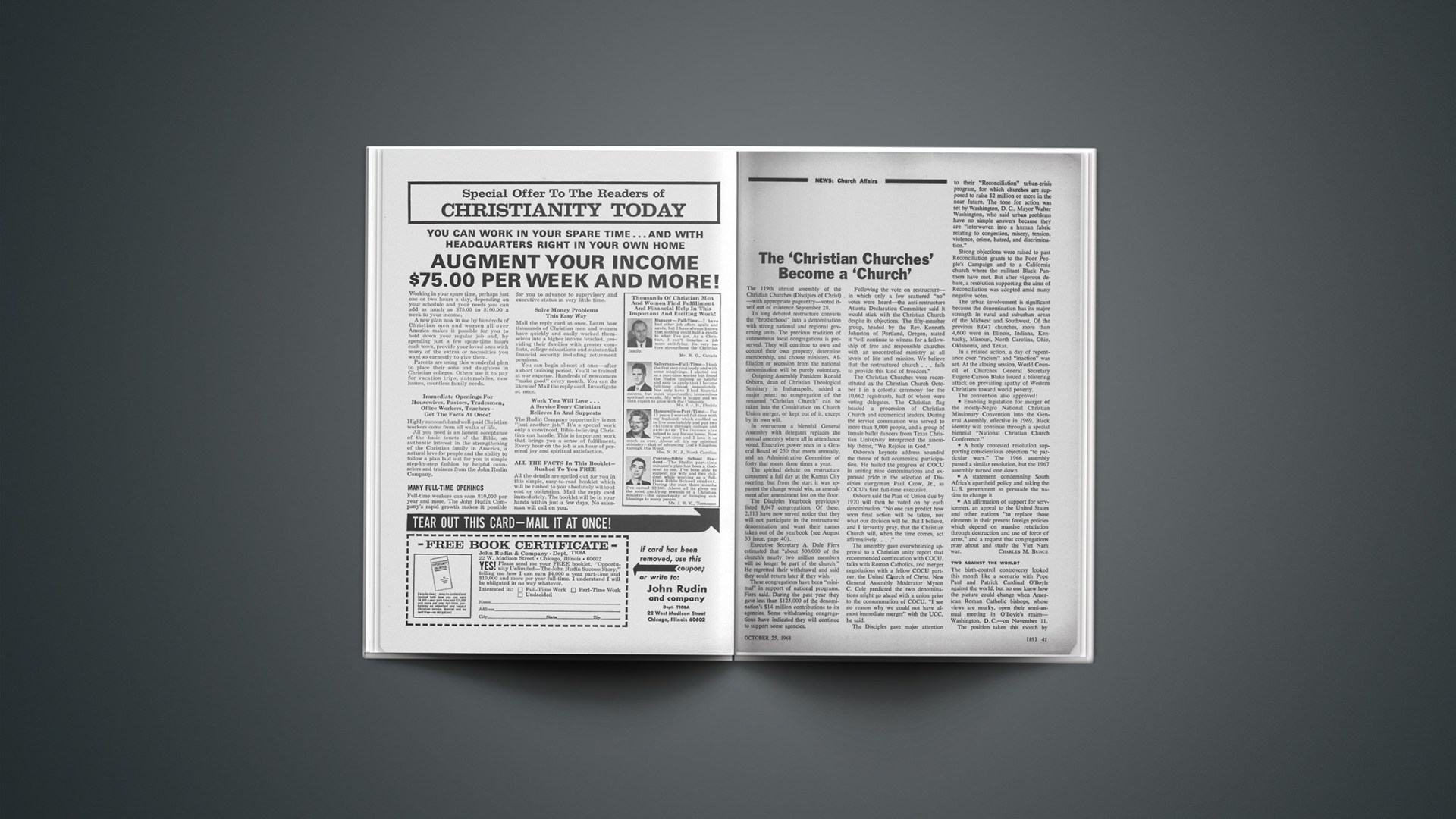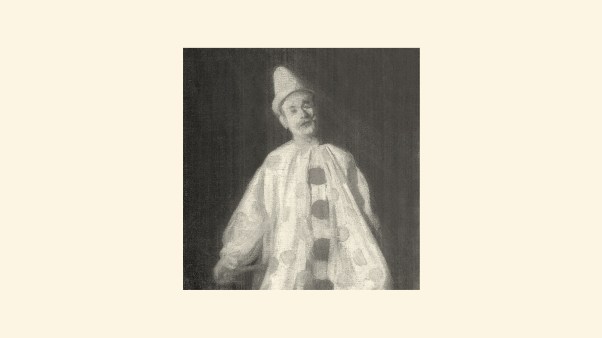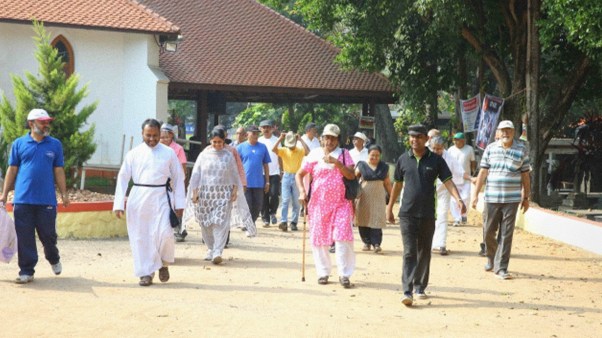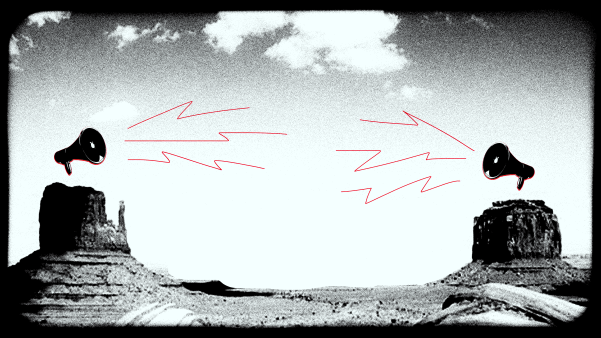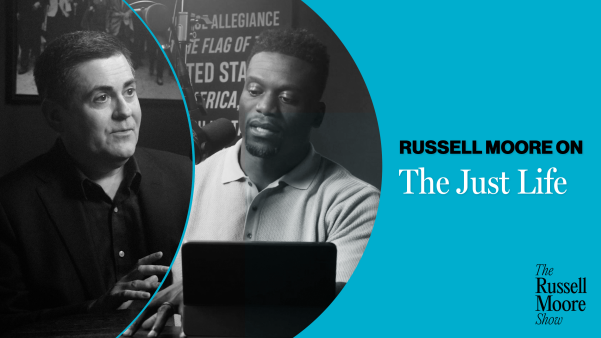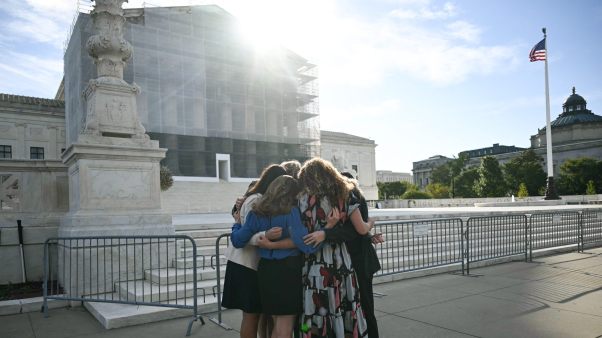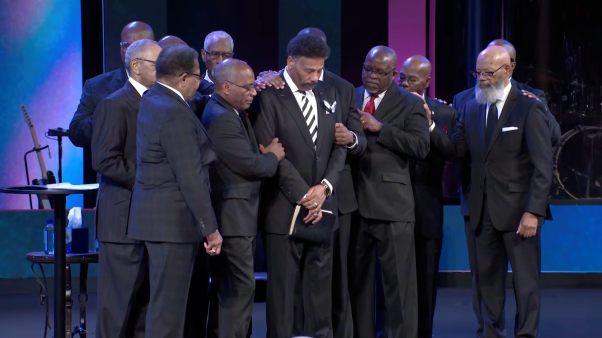This report is by Wallace Henley, religion editor of the “Birmingham News,” Alabama’s largest newspaper:
“Dear Patriot:
“Should we reelect the gang that takes Christ out of Christmas, prayer out of the public schools and may yet tax the tabernacles or temples of the Living God? Everything this outfit does is wrong and nothing is right!? Mt. 7:20. Time for a change to the Wallace Ticket. Pr. 14:34; Mt. 6:33; Acts 5:38–9.”
Despite omissions (Wallace has hinted he’d want to tax church property, though aides deny he would) and selective proof-texting (how about Galatians 3:28 or 6:10?), this mimeoed mailing last month from the anti-fluoridation American Press in La Crosse, Wisconsin, expresses the mood of an untold number of conservative Protestants in this election.
The fact that George Corley Wallace’s third party could roll up the same 25 per cent chunk of the vote November 5 that the Know-Nothings got in 1856 has vast implications for the effect of the Church on social attitudes. For when was the last time a candidate so symbolized opposition to the consensus of most U. S. church leaders on a matter so important as race?
The latter-day Crusade of avowed segregationist Wallace has taken on the tinge of a religion—a civil religion, to be sure. A young Birmingham minister who has watched the numerous Wallace drives in Alabama describes the White House bid as “a campaign with messianic ring.” Wallace, he explains, seeks to present himself as the saviour of the United States, a prince of hope, swinging his broad sword in a holy war against evil.
Wallace has a list of inevitable “fed-ups” punctuating every speech. There is an aura of electricity about him, an elocutionary style so laced with pepper and verbal spice that his sayings are highly palatable to many.
Wallace is, in the Populist style he adores, a religious man. He was raised in the Methodist Church in Clio, Alabama. When the family moved he joined the Methodist Church in Clayton, and was a certified lay leader, Sunday-school teacher, and official board member. In 1963 the new governor became an affiliate of St. James Methodist Church in Montgomery.
American Independent Party headquarters said Wallace’s late-chosen running-mate, former Air Force chief Curtis LeMay, is also a Methodist.
Wallace was elected a lay delegate to the Methodist General Conference this spring in Dallas, where plans were discussed for massive racial inclusion in the new United Methodist Church by 1972. Wallace, though campaigning in Dallas, never showed for the conference.
The Rev. Lamar Brown of the Clayton church said Wallace didn’t attend because he doesn’t like to give the impression he’s using the church for political gains.
Wallace’s pastor at Montgomery, the Rev. John Vickers, now a Florida district superintendent, agrees with Brown that Wallace’s religious views are strongly fundamentalist. Brown thinks Wallace’s political ideas have some connection with this fact, though he doesn’t think Wallace closely relates his religious views to his total thinking.
As governor, Wallace sponsored a rigid anti-lottery bill, hung a 3 per cent tax on liquor, and kept the governor’s mansion dry. A veteran state political writer thinks Wallace’s stand on alcohol was a mix of personal preference and vote-getting. Wallace also wants to see Supreme Court rulings on school Bible reading and prayer reversed.
Wallace’s religious support is not limited to the American Press types. Vickers is one of his most ardent backers. He preached the funeral for the late Governor Lurleen Wallace and frequently leads in prayer at Wallace rallies. “It’s out of love for God, country, and fellow man that George Wallace submits himself to the kind of pressure he does,” Vickers says.
A July survey of 500 Florida and and Louisiana Southern Baptist ministers showed 36 per cent intended to vote for Wallace. Ordained Baptist minister John Buchanan, a Republican congressman from Alabama, has already announced he’ll vote for Wallace if an Electoral College tie-up sends the election into the House.
A Gallup Poll last month of 3,011 adults in 320 communities showed 47 per cent of the Protestants planned to vote for Nixon, 24 per cent for Humphrey, and 22 per cent for Wallace, with 7 per cent undecided.
Nor is all the support Protestant. In a friendly March editorial, the Roman Catholic paper in Belleville, Illinois, said that “some former ridiculers of Wallace are coming around to thinking that he has a more realistic and workable solution to the race question than some others with overly sanguine remedies for the race problem, which remedies have so far not worked out too well in practice.” In a straw vote last month, evening students at Catholic La Salle College in Philadelphia gave Wallace 26 per cent of their votes.
But the Southern Committee on Political Ethics headed by former Southern Baptist President Brooks Hays charged this month that the Wallace candidacy is based on fear and hostility and racial conflict,” and that Wallace has “welcomed the support of many acknowledged and outspoken racists and has given them and their views a platform and a legitimacy they could not otherwise have achieved.”
The assistant minister of a 3,000-member Alabama church commented, “I have never seen a man with such obvious contradictions. He’s working his head off now to drop the label that he’s a racist, yet Robert Shelton of the Ku Klux Klan and Gerald L. K. Smith, the anti-Semite, are among Wallace supporters.
“He may be drawing support because of his insistence on ‘law and order.’ Yet, during his entire administration as governor of Alabama, he was under court injunction not to interfere with desegregation, but he counseled Alabama educators to flaunt the laws, and perched himself like a fighting cock in the door of the University of Alabama, in an effort to prevent integration there.”
The “racist” label may be the most serious problem for Wallace as a Christian, and even among would-be supporters, he has trouble shaking the tag. The minister of a large Alabama Methodist church says if Wallace is now serious about disclaiming racism he should repudiate his 1963 inaugural speech, in which he delighted supporters by promising “seregation now, segregation tomorrow, segregation forever.”
The vast National Baptist Convention Inc. counts among its members some of the nation’s most conservative Negroes. At its Atlanta meeting last month, a New Yorker whose opinions nearly outstripped denominational President Joseph H. Jackson in conservatism was asked by a white moderate if he would vote for Wallace. The quick retort: “Of course not. Wallace is a racist.”
Wallace statements like: “If any demonstrators lie in front of my car, it’ll be the last car they lie in front of,” make some question whether Wallace is the man of love described by Vickers. Cartoonist Al (Li’l Abner) Capp surprised Birmingham recently by revealing that he likes much of what Wallace is saying. But Capp wishes Wallace had more love.
The Governor—as he is called lovingly and otherwise in Alabama—has not spared verbal assaults on those consigned to his blacklist. His typical accounting runs “all those preachers and professors and newspaper editors that have been looking down their noses at us working people on the street.”
One preacher who could easily find a place on the list, and one of the few who dare talk about Wallace for attribution, is the Rev. Donald Shockley, 31, an Alabama native who is chaplain of Methodist-related Birmingham Southern College. “Wallace is religious in the same sense a demagogue is religious, though I wouldn’t label Wallace a demagogue,” he says. In his view Wallace is akin to Salem’s witch-hunters. “I’m beginning to wonder if we don’t have a tendency to go witch-hunting in times of great disillusionment,” he says, as in the present ferment over Viet Nam, poverty, and the dissolution of order.
The young minister said his greatest fear about George Wallace is that “the man has no sense of humor. He can’t laugh at himself or his aims.”
The Also-Rans
For those who don’t want to vote for Humphrey, Nixon, or Wallace, there are often other names sprinkled on the ballot, and some of them may be religious.
E. Harold Munn, Sr., 64, acting dean of American Baptist-related Hillsdale College, is running for president for the 99-year-old Prohibition Party. Because of a close check on petitions he won’t even be on the ballot in his home state of Michigan, but he made it in nine other states. Munn’s running-mate is the Rev. Rolland B. Fisher, 68, a Free Methodist evangelist.
In his 1964 race Munn got 22,000 votes; he estimates he would have gotten a million if he had been on all state ballots. Free Methodist Munn hasn’t been setting the world on fire in his modest campaign forays, but he perseveres, with the major effort being a week-long tour set to begin in mid-October in Delhi, New York.
The party platform recognizes “Almighty God as the source of all just government” and vows “faith in the teachings of the Lord Jesus Christ.” For the first party to propose the income tax, the Prohibitionists are pretty conservative these days. They stand for strict morality—on alcohol and elsewhere—and Munn sympathizes with fellow third-party candidate George Wallace’s law-and-order emphasis. “But Wallace is not committed to the Christian attitude in the area of human rights,” he laments.
The Wallace surge seems to have eclipsed the independent Democratic drive of James S. Greenlee, Los Angeles “Evangelist, Revivalist, Reformation Leader, Songwriter, Singer, and God’s Watchman for America.” Greenlee announced in a New York Times ad last year that he was running for President to solve “The Negro Problem, The Communist Problem, and The Liquor and Drink Problem.”
1968’s most cheerful nominee is Church of God Bishop Homer A. Tomlinson of the Theocratic Party. Tomlinson somehow claims he got three million write-ins in 1960. The platform, “based wholly upon the teachings of Jesus,” looks for the Kingdom of God to be ruling America by 1975. Theocrats had supported Lyndon Johnson until he withdrew.
Blame And Blood
History may help place the blame for the bloody Nigerian civil war. Mrs. Olayinka Ibiam, veteran missionary and wife of Eastern Nigeria’s former governor, writes to world Christians that breakaway Biafra has suffered “oppression, aggression, and genocidal war” under instigation of Britain, with full American backing. Rabbi Marc Tanenbaum of the American Jewish Committee says America should tell the Soviet Union it won’t tolerate shipments of bombers to Nigeria to be piloted by Egyptians against Biafra.
Catholic Bishop Joseph Whelan of Biafra charges that Nigeria’s air force has bombed and strafed civilians and hospitals. The Swedish Red Cross blames a drunken Nigerian soldier for the deaths of the Rev. and Mrs. Tarka Savory of the British Church Missionary Society and two other relief workers. A Nigerian military governor claims the Catholic relief agency Caritas has been smuggling arms to Biafra.
However and whenever the war ends, a massive welfare job faces church and government. Without vast relief, one million people may die of malnutrition and starvation, estimates Missouri Synod Lutheran mission chief William H. Kohn. And Quaker observer David Scanlon says that after the war Nigeria must care for five to six times the present number of refugees.
Of more immediate concern is the United Nations estimate that up to 10,000 are dying daily in Biafra alone.
Tanenbaum credits Christian agencies with “a moral passion, courage, and realistic help” unmatched by any government or secular group, with airlifts to Biafra despite Nigerian criticism, risk, and high cost.
In September Red Cross planes flew in 1,250 tons of high-protein food, much of it from World Council of Churches agencies. A separate Scandinavian-German church effort airlifted 2,830 tons of food and medicine.
MEHDI-ING THE WATERS
On the eve of the trial of Sirhan Sirhan, the head of the Action Committee on American-Arab Relations claims in a new book that psycho-social and political forces led the defendant to kill Senator Robert F. Kennedy.
Author M. T. Mehdi says Sirhan, a fellow Arab, will not get a fair trial in Los Angeles because all jurors will be prejudiced in favor of the Kennedys and know nothing about the circumstances that made Sirhan a refugee, “destroyed his life, and forced him to do what he did.”
Mehdi’s book says Sirhan’s notebook carried the notation “June 5th-Robert Kennedy must die.” This was the day the brief 1967 Arab-Israeli war began, leading to an Israeli victory that Mehdi says “was achieved with President Johnsan’s endorsement and Robert Kennedy’s support.” Mehdi claims both politicians would have been willing to sacrifice 50,000 Arab lives to get 50,000 Jewish votes. And if an act of assassination was “illegal,” he says, Kennedy’s call for fifty jets to Israel was “immoral.”

